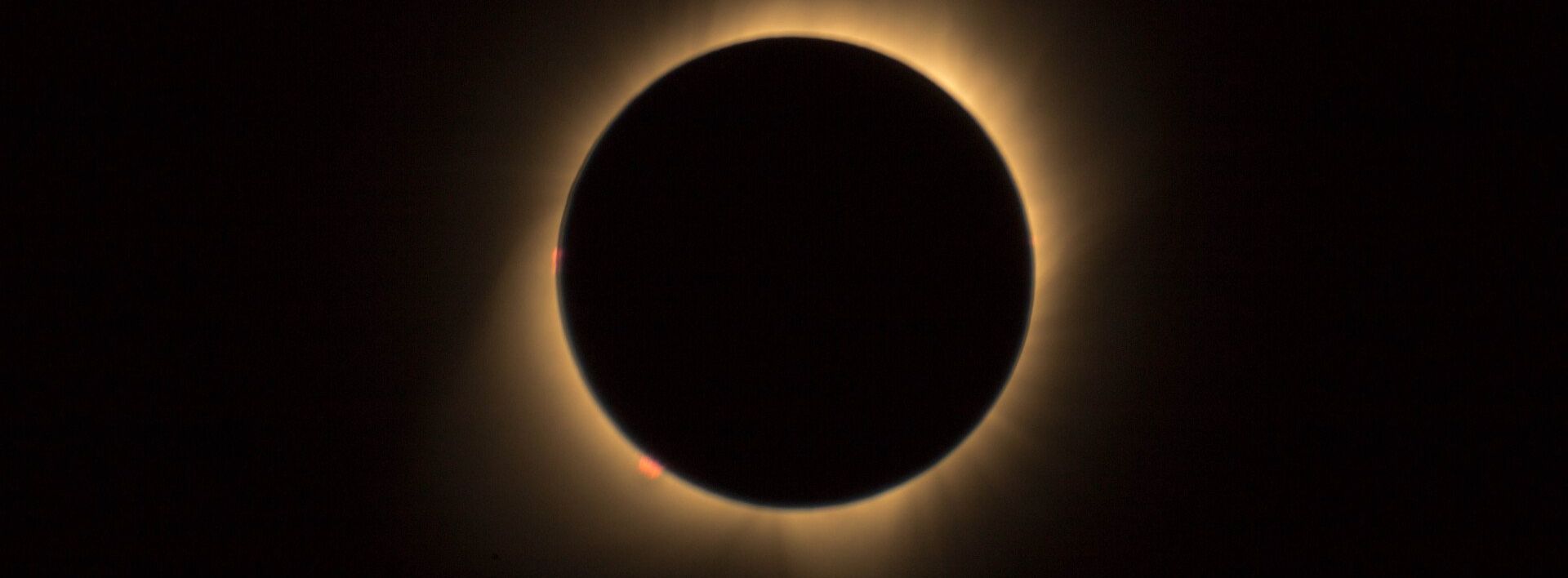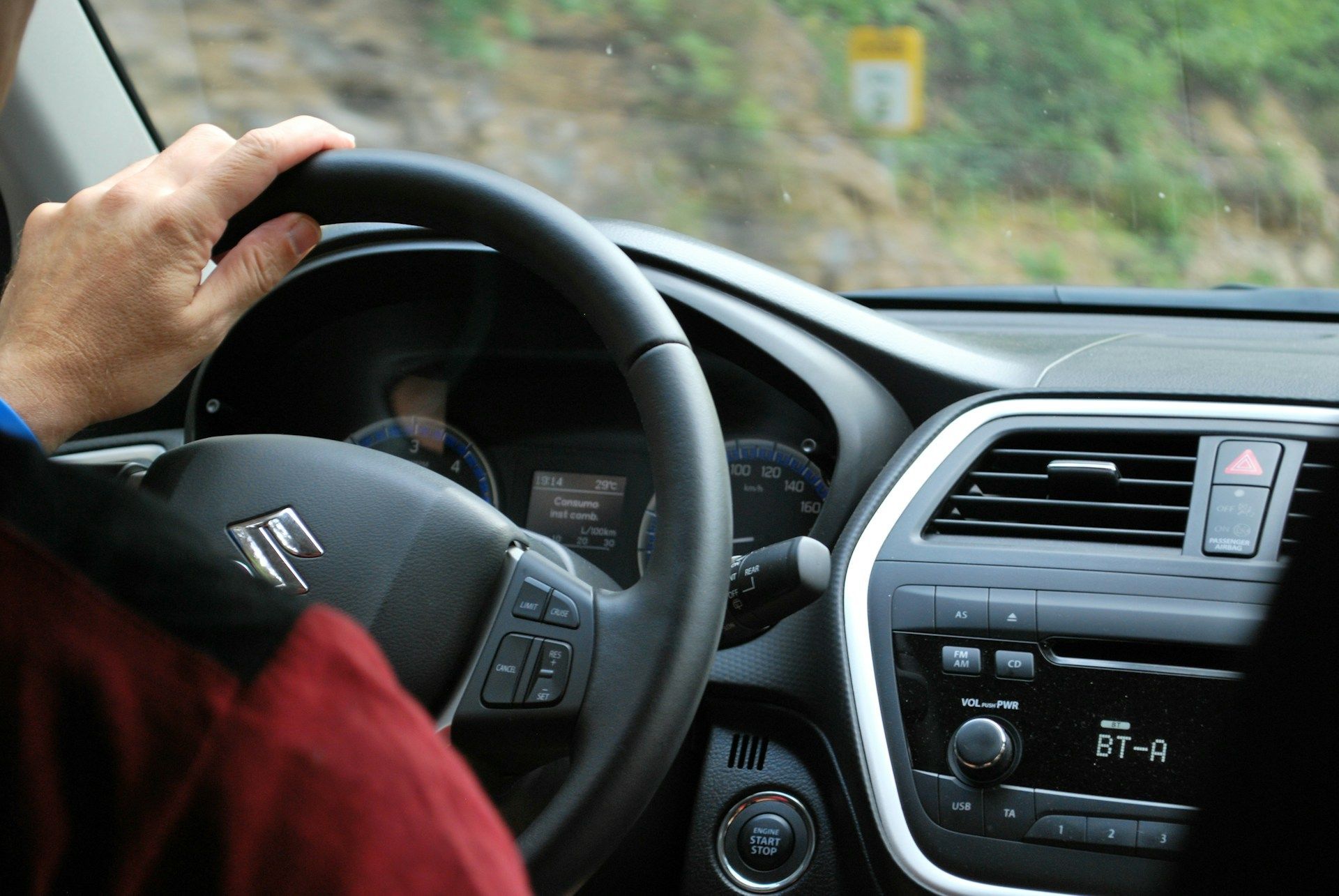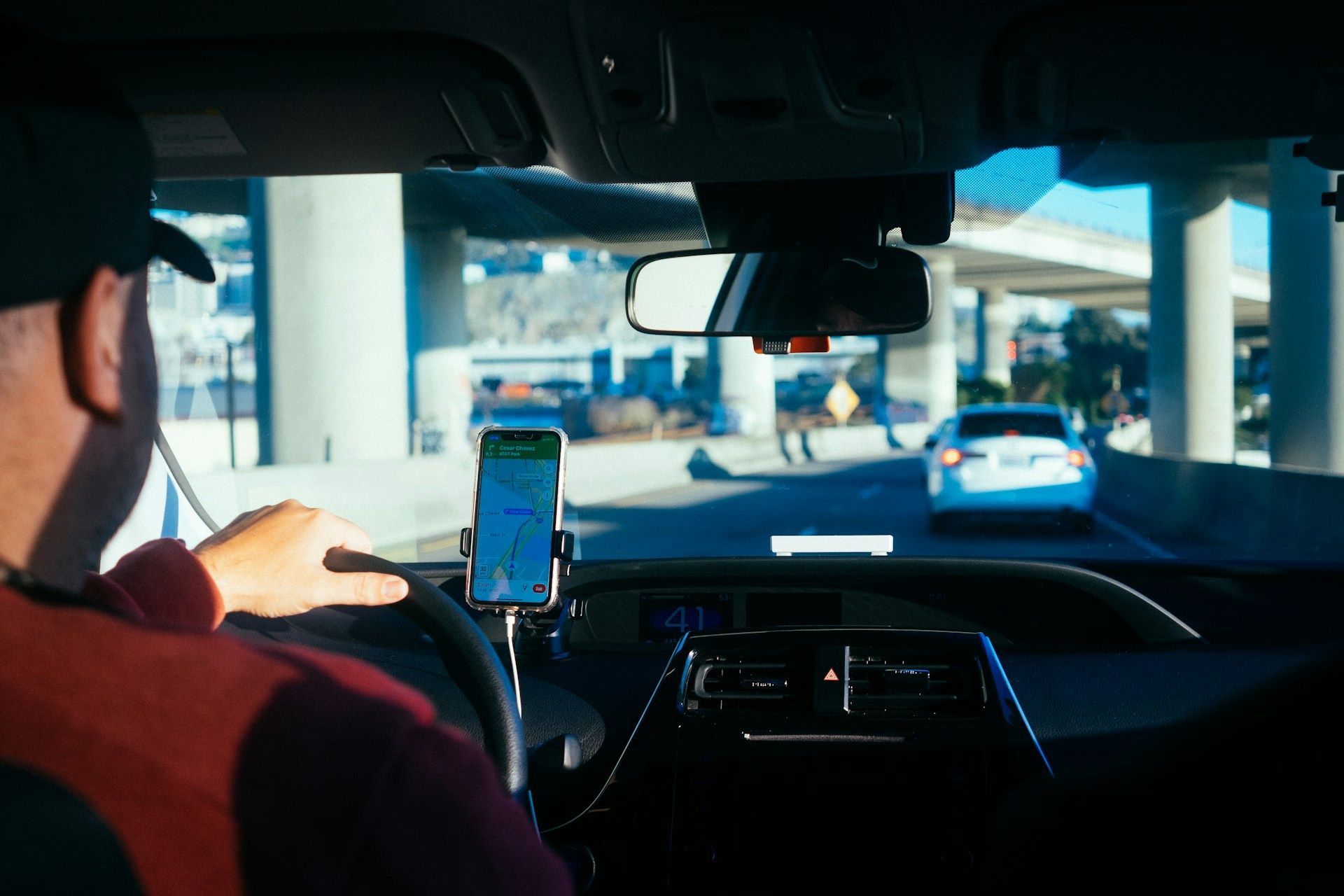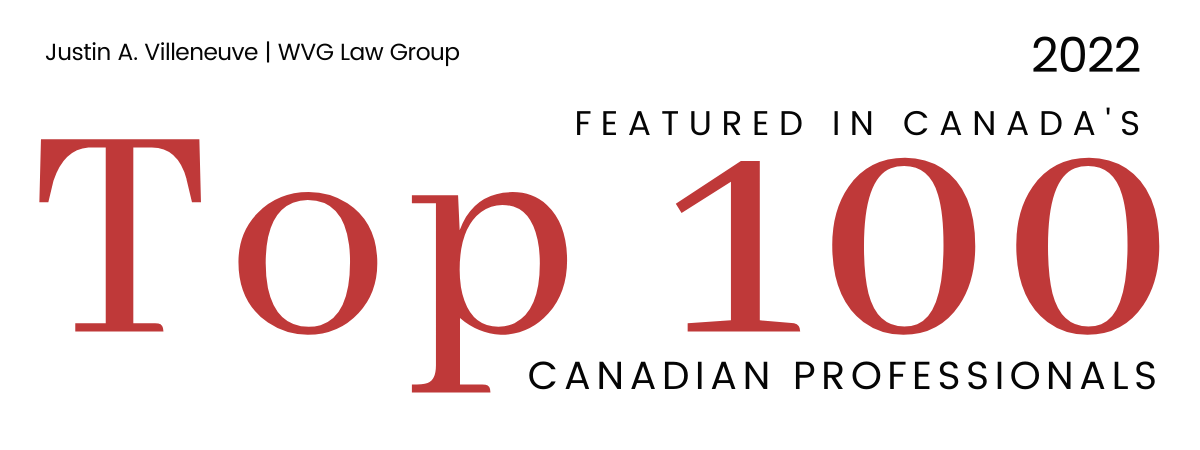Let's talk about your case
You can schedule a call with one of our lawyers anytime. Call today and get the help you need.
Or fill out our online form, and we will respond within 24 hrs.
Car Accident During Eclipse: Impact and Surge
Eclipse Impact: Car Accident During Eclipse
Key Highlights
Research shows that there was a significant increase in traffic fatalities during the last total solar eclipse, with one extra vehicle crash every 25 minutes and one extra crash fatality every 95 minutes.
- The increase in traffic risks around the time of the eclipse was similar to the increased risks observed during Thanksgiving.
- The increased risks are not solely due to changes in light but are a result of factors such as increased traffic, travel on unfamiliar routes, speeding, driver distraction, impairment from related celebrations, and viewing the eclipse from unsafe roadside locations.
- The next total solar eclipse will occur on April 8, 2024, and is within driving range for more than 200 million people in the US and Canada.
- To prevent another surge in traffic fatalities, it is important for drivers to respect speed limits, minimize distractions, allow more headway, wear seatbelts, and never drive impaired.
Introduction
Solar eclipses are mesmerizing celestial events that capture the attention and curiosity of people around the world. These rare occurrences, where the moon passes between the sun and the Earth, create a stunning spectacle in the sky. However, the impact of a solar eclipse extends beyond the awe-inspiring visuals. Recent research has revealed a concerning trend: an increase in car accidents during these celestial events.

Understanding Solar Eclipses and Their Attraction
Solar eclipses occur when the moon aligns perfectly with the sun, temporarily blocking its light. This alignment creates a unique opportunity for viewers to witness the beauty of the sun's corona and experience a brief moment of darkness during the day. The allure of a total solar eclipse, where the moon completely covers the sun, attracts large crowds of people from all over the world. These events are often viewed as once-in-a-lifetime experiences, prompting individuals to travel long distances to witness the celestial phenomenon.
What causes a solar eclipse?
A solar eclipse occurs when the moon's orbit intersects with the Earth's orbit around the sun. During a total solar eclipse, the moon aligns perfectly with the sun, casting a shadow on the Earth's surface. This alignment is a result of the moon's elliptical orbit, which causes it to pass between the Earth and the sun at specific points in time. As the moon moves across the sun, it gradually blocks its light, creating a mesmerizing celestial event that captivates viewers. The path of totality, where the moon completely covers the sun, is the most sought-after viewing experience during a solar eclipse.
Why do solar eclipses attract large crowds?
The rarity and spectacle of a total solar eclipse make it a highly anticipated event. The path of totality, where the moon completely covers the sun, offers a unique opportunity for viewers to witness the sun's corona, the outermost part of the sun's atmosphere. This captivating phenomenon draws people from all over the world to gather in specific locations along the path of totality, including New York. The desire to experience the darkness of a total solar eclipse and witness the sun's corona firsthand drives the high attendance and large crowds during these celestial events, including partial eclipses.
Historical Data on Traffic During Solar Eclipses
Historical data on traffic patterns during solar eclipses provides valuable insights into the impact of these celestial events on road safety. Analyses of past eclipses have revealed notable increases in traffic incidents and fatalities, shedding light on the potential risks associated with driving during a solar eclipse.
Analyzing past traffic patterns during eclipses

Analyzing past traffic patterns during eclipses
A study conducted by researchers at the Sunnybrook Research Institute analyzed traffic data during the last total solar eclipse in August 2017. The study found a significant increase in traffic risk during the eclipse, with one extra vehicle crash every 25 minutes and one extra crash fatality every 95 minutes. The total amount of extra deaths linked to the eclipse was 46. This increase in traffic risk, as reported in a research letter published in the journal JAMA Internal Medicine, is similar to the heightened risks observed during Thanksgiving. The researchers, including lead investigator Donald Redelmeier, a senior scientist in the Tory Trauma Research Program, attributed the increased risks to factors such as increased traffic volume, travel on unfamiliar routes, speeding, driver distraction, impairment from related celebrations, and viewing the eclipse from unsafe roadside locations.
Notable increases in traffic incidents
The analysis of the data revealed a significant increase in traffic incidents during the total solar eclipse. The researchers observed a higher number of fatal crashes, with 741 individuals involved in fatal crashes over the three-day eclipse exposure interval. This corresponded to a rate of 10.3 fatal crashes per hour, a notable 31 per cent increase in traffic risks around the time of the eclipse. In comparison, during the six control days, there were 1137 fatal crashes, resulting in a rate of 7.9 fatal crashes per hour. This increase in traffic incidents during the eclipse highlights the importance of understanding the potential risks and taking necessary precautions to ensure road safety during these celestial events.
The Impact of Solar Eclipses on Driver Behavior
Solar eclipses have a profound impact on driver behavior, leading to an increased risk of car accidents. The unique nature of these celestial events can create distractions and psychological effects that influence driver decision-making and behavior on the road. Understanding these factors is crucial in developing strategies to mitigate the risks associated with driving during a solar eclipse.
Distractions caused by solar eclipses
Solar eclipses can be highly distracting for drivers. The darkness and changes in lighting conditions during an eclipse can significantly impact visibility on the road. Moreover, the fascination with the celestial event can lead drivers to take their eyes off the road, particularly when attempting to view the eclipse or capture it on their phones or cameras. Additionally, the influx of people traveling to view the eclipse can result in increased traffic congestion and delays, creating further distractions for drivers. Navigating unfamiliar roads and searching for suitable viewing locations can also contribute to driver distraction and increase the risk of accidents, especially if drivers choose to pull over to the side of the road to view the eclipse. It is crucial for drivers to remain focused on the task of driving and avoid distractions associated with the solar eclipse.

Psychological effects on drivers
Solar eclipses can have psychological effects on drivers, similar to the impact it has on animal behavior. The sudden darkness during a total solar eclipse can evoke feelings of unease or anxiety in some individuals. These psychological effects can influence driver behavior, leading to changes in decision-making, reaction times, and overall driving performance. It is important for drivers to be aware of these potential effects and take steps to ensure their own safety and the safety of others on the road. Adapting to the unique conditions of a solar eclipse and maintaining a calm and focused mindset can help mitigate the psychological impact and reduce the risk of accidents.
Safety Measures for Driving During Solar Eclipses
Driving during a solar eclipse requires additional safety measures to minimize the risk of accidents and ensure the well-being of drivers and passengers. Taking proactive steps to prepare for the unique challenges of a solar eclipse can help create a safer driving environment.
Essential tips for safe driving
- Respect speed limits: Adhere to posted speed limits and adjust your driving speed according to the road and weather conditions.
- Minimize distractions: Avoid using electronic devices, eating, or engaging in other distracting activities while driving.
- Allow more headway: Maintain a safe following distance between your vehicle and the one in front of you to allow for increased reaction time.
- Wear a seatbelt: Always wear your seatbelt and ensure that all passengers are properly restrained.
- Choose a safe location: Avoid viewing the eclipse while driving and opt for a safe location, such as a parking lot or designated viewing area, to observe the celestial event.
Protective gear for viewing eclipses while on the road
When viewing a solar eclipse while on the road, it is crucial to protect your eyes from the harmful effects of direct sunlight. Specialized protective gear, such as eclipse glasses, can shield your eyes from the intense light emitted by the sun during an eclipse. These glasses are designed to filter out harmful ultraviolet and infrared rays, allowing you to safely observe the eclipse without risking damage to your eyes, preventing potential eye injuries. It is important to ensure that the eclipse glasses you use are certified and meet the necessary safety standards. By wearing proper protective gear, you can enjoy the beauty of a solar eclipse while prioritizing your eye health and safety.
Case Studies: Solar Eclipse Related Accidents
Examining specific incidents related to solar eclipses can provide valuable insights into the causes and consequences of accidents during these celestial events. Case studies offer a deeper understanding of the factors contributing to accidents and help identify lessons learned to prevent similar incidents in the future.
Detailed analysis of specific incidents
Case studies of fatal crashes occurring during the last total solar eclipse reveal the tragic consequences of car crashes during these events. By analyzing the circumstances surrounding these incidents, researchers can identify common patterns and factors that contribute to the severity of accidents. These in-depth analyses offer valuable insights into the specific challenges faced by drivers during a solar eclipse and provide a foundation for developing preventative strategies to minimize the risk of car crashes and save lives.
Lessons learned from past accidents
Learning from past accidents during solar eclipses is crucial in developing preventative strategies and improving road safety during these celestial events. By identifying the common factors and behaviors that contribute to accidents, stakeholders can implement targeted measures to mitigate the risks and ensure the well-being of drivers and passengers. These lessons learned serve as a foundation for proactive planning and education campaigns to raise awareness and promote responsible driving behaviors during solar eclipses.
Preventative Strategies for Future Eclipses
To prevent a surge in traffic fatalities during future solar eclipses, it is essential to implement preventative strategies that address the unique challenges posed by these celestial events. By planning ahead and implementing proactive measures, stakeholders can help ensure the safety of drivers and reduce the risk of accidents during solar eclipses.
Role of traffic management
Effective traffic management plays a crucial role in minimizing the risks associated with driving during a solar eclipse. The Federal Highway Administration, in collaboration with local authorities, can develop comprehensive traffic management plans that focus on optimizing the flow of vehicles, managing congestion, and providing clear directions to drivers. By implementing efficient traffic management strategies, stakeholders can reduce the likelihood of accidents and create a safer driving environment for all road users.

Public awareness campaigns
Public awareness campaigns are instrumental in educating drivers about the potential risks and safety measures associated with driving during a solar eclipse. These campaigns can provide information on safe driving practices, the importance of avoiding distractions, and the use of appropriate protective gear. By raising awareness and disseminating relevant information, stakeholders can empower drivers to make informed decisions and prioritize road safety during solar eclipses. The next total solar eclipse presents an opportunity to launch targeted public awareness campaigns to ensure drivers are well-prepared and equipped to navigate the unique challenges of driving during the celestial event.
Legal Perspectives on Eclipse-Related Accidents
Eclipse-related accidents can have legal implications for both drivers and other parties involved. Understanding the legal aspects and seeking appropriate advice is essential for navigating the complexities surrounding liability and insurance claims in the aftermath of these accidents.
Liability and insurance implications
Determining liability in eclipse-related accidents requires a careful examination of the circumstances surrounding the incident. Factors such as driver negligence, road conditions, and adherence to traffic laws play a crucial role in establishing liability. Insurance implications also need to be considered, as certain policies may have specific provisions related to accidents occurring during celestial events. Seeking advice from legal experts and insurance professionals can help individuals involved in these accidents understand their rights and obligations, ensuring a fair resolution and appropriate coverage.
Advice from legal experts
Legal experts can provide valuable advice and guidance to individuals involved in eclipse-related accidents. They can help navigate the legal complexities surrounding liability, insurance claims, and potential legal actions. Seeking timely legal advice ensures that individuals understand their rights and obligations, empowering them to make informed decisions and pursue appropriate legal recourse if necessary. Legal professionals can also provide insights into preventative measures and risk management strategies to mitigate the potential legal ramifications of eclipse-related accidents.
Frequently Asked Questions
What are the safest practices for driving during a solar eclipse?
The safest practices for driving during a solar eclipse include respecting speed limits, minimizing distractions, allowing more headway, wearing seatbelts, and avoiding driving while impaired. It is also important to view the eclipse from a safe location and use appropriate protective gear, such as certified eclipse glasses.
Resources:
Let's talk about your case
You can schedule a call with one of our lawyers anytime. Call today and get the help you need.
Or fill out our online form, and we will respond within 24 hrs.
Thank you for contacting us.
We will get back to you as soon as possible. You can also book using this link: Personal Injury Booking Page
Please try again later
Related Blog Posts
Practice Areas
QUICK LINKS
CONTACT US
Tel: (613) 505- 5025
Fax: (613) 234-5852
info@wvgblaw.com
200-2571 Carling Avenue
Ottawa, Ontario
K2B 7H7
SERVICES
RECENT BLOG POSTS














